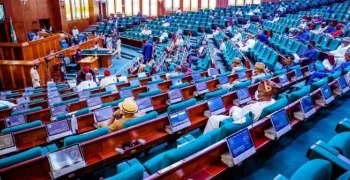Chairman of the Presidential Committee on Fiscal Policy and Tax Reforms, Taiwo Oyedele, says the proposed 5% fuel surcharge will not take effect until economic conditions improve, warning that introducing it now would deepen financial pressures on Nigerians.
Speaking at the Haulage & Logistics Magazine Conference & Exhibition in Lagos yesterday, Oyedele described the levy—earmarked for road maintenance—as a “sound policy” widely used globally, but “insensitive” under current realities. He said the surcharge, first mooted during the Olusegun Obasanjo administration, is designed to dedicate fuel-derived revenues to roads—40% for federal roads and 60% for state and local government networks.
“The idea is brilliant and already in place in more than 150 countries,” he noted, citing the poor state of most of Nigeria’s roughly 200,000 kilometres of roads. “But introducing such a tax now would be insensitive.”
Oyedele disclosed that the Federal Roads Maintenance Agency (FERMA) had sought to begin collections after the fuel subsidy removal, but the reform committee declined. The draft tax law, he explained, includes the surcharge with a safeguard: it cannot be activated without a formal order by the Minister of Finance.
“For me, the right time will be when the naira strengthens or crude prices drop, so the surcharge won’t raise pump prices,” he said.
Beyond the levy, Oyedele outlined reliefs for the transport and logistics industry under the ongoing tax reforms, pledging to eliminate multiple taxation, curb costs and boost efficiency. “We are not introducing new taxes; we are removing the many duplicated ones that frustrate transporters and increase prices,” he said.
Under the proposed framework, small transport and logistics firms with annual turnover below ₦100 million would be exempt from company income tax, while eligible operators would gain access to VAT refunds and targeted incentives. The broader reform, he added, aims to simplify Nigeria’s complex tax architecture and ensure transparent, efficient collections shared across all tiers of government.
“Our objective is a simpler, fairer system that supports growth—without piling on new burdens,” Oyedele said.






















